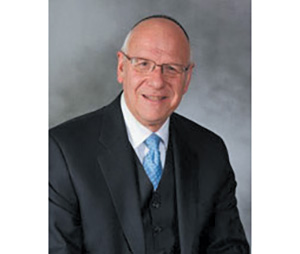
Shabbat HaChodesh
Parshat Vayikra
The final chapters of Sefer Yechezkel are prophecies that detail the construction of, and the service in, the future Beit Mikdash. The special haftarah designated for this Shabbat before (or of) Rosh Chodesh Nisan is taken from the 45th and 46th perakim of the Book of Yechezkel, which discuss the observance of Korban Pesach, the Paschal Sacrifice, in the future.
Yet, leading up to this description we find God’s condemnation of the traitorous and corrupt behavior of Israel, her leaders and her kohanim, who were then serving in the not-yet-destroyed First Temple. He goes on to contrast their behavior with the careful and exacting behavior of the attendants in the future Temple and calls upon those who still serve in the Beit HaMikdash to cease their lawlessness and pursue justice and kindness.
Although one can easily focus upon the ritual detailed in this haftarah, the fact is that very little of the message speaks of the Korban Pesach. It begins by describing the service that would take place on Rosh Chodesh Nisan, when the dedication of the new Temple would begin. How stark is the realization that this first day of Nisan was not only the day that Israel received her first communal mitzvah of which we read in this week’s Maftir, but also the first day of service in the Mishkan exactly one year later! As Yechezkel speaks of the special rituals that would be followed on this same day in the future, the day when the new Mikdash would be dedicated, we are made aware, as Rav Yehuda Shaviv points out, that the redemptive process that began on Rosh Chodesh Nisan will also culminate on the first of Nisan, with the completion of the permanent Beit HaMikdash. The geula process described in Parshat Va’era begins with “v’hotzeiti,” “I shall take you out of Egypt,” and reaches its climax with “v’lakachti,” “I shall make you my nation” by dwelling in our midst, in the Holy Temple (something, of course, that is possible only with our return to the place of the Mikdash!).
What follows, therefore, is the understanding that the significance of our haftarah is not simply its description of the laws of the future Korban Pesach, which connects us to the upcoming holiday, but its lesson that Rosh Chodesh Nisan, the day that we are observing this very Shabbat, is, in itself, a day to celebrate and to remember.
“HaChodesh hazeh lachem rosh chodashim”: Nisan is the first month and also the most significant month for Israel. A reminder that redemption isn’t complete with the release from bondage or even a return to the land, but only with a return to God and His consent to dwell in our midst.
By Rabbi Neil N. Winkler
Rabbi Neil Winkler is the rabbi emeritus of the Young Israel of Fort Lee and now lives in Israel.










